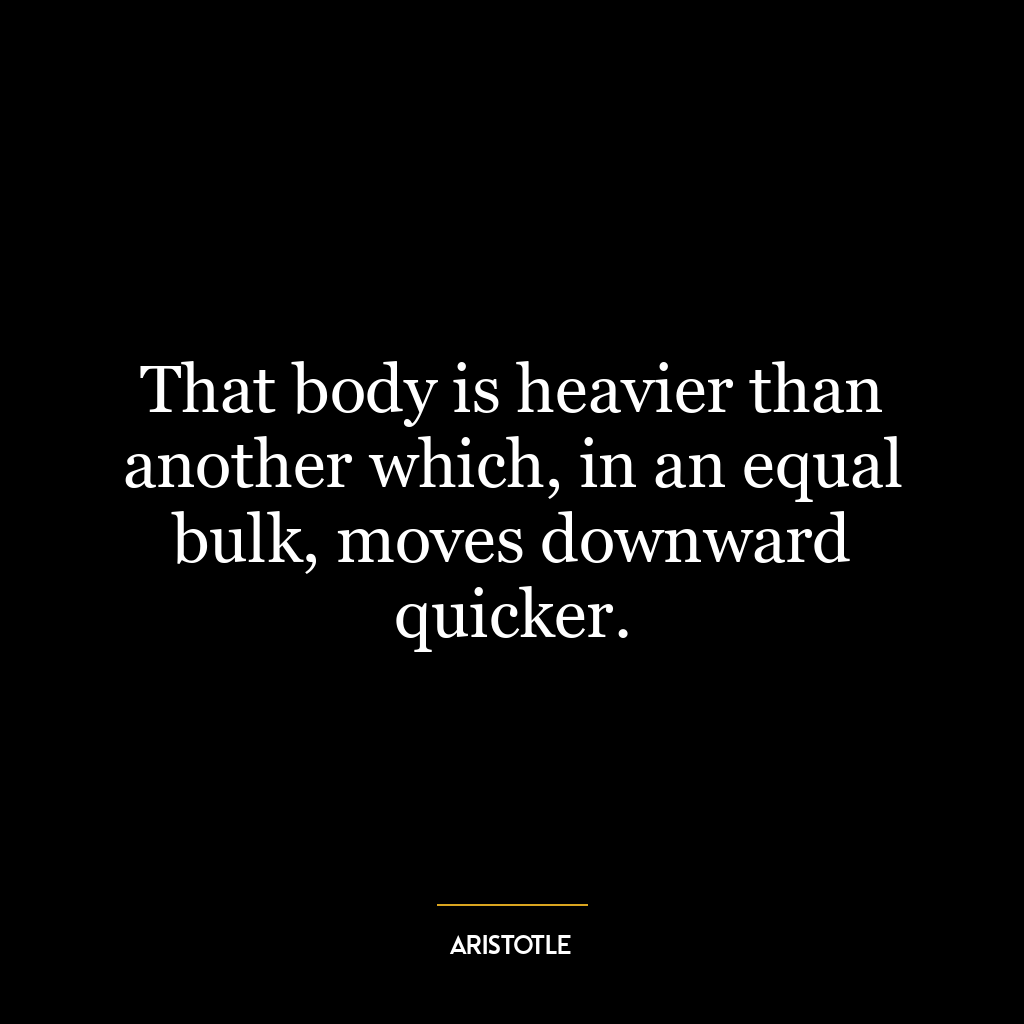Aristotle’s quote “That body is heavier than another which, in an equal bulk, moves downward quicker” is essentially an early articulation of the concept of density and gravity. In simple terms, Aristotle is saying that if you have two objects of the same size, the one that falls to the ground more quickly is the heavier one.
This reflects the basic principle of gravity: a force that attracts two objects towards each other, the earth and the object in this case. The speed at which the object falls (its weight) is an indication of the strength of this gravitational pull. However, Aristotle’s understanding was not completely accurate, as he did not account for the resistance of the medium through which the objects are falling, like air resistance.
In the modern world, this principle is applied in numerous ways. For instance, in the field of physics and engineering, understanding the relationship between size, weight and speed is crucial in designing and building structures, vehicles, and all kinds of tools and machinery.
In terms of personal development, this quote could symbolize the idea that heavier burdens or responsibilities may bring us down more quickly, but they also ground us and give us a stronger connection to reality. Just as a heavier object has a stronger gravitational pull, a person with greater responsibilities may feel more deeply connected to their life and their world. This perspective encourages us to view challenges not as burdens, but as opportunities for growth and grounding.












